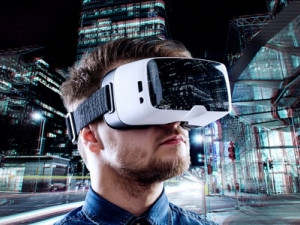
There will be nearly 60 million smartphone virtual reality (VR) headsets shipped in 2021, an increase of around 240% on an expected 16.8 million shipped this year.
This is according to a Juniper report titled Virtual Reality Markets: Hardware, Content & Accessories 2016-2021, which reveals smartphone VR will claim over half of VR device shipments by 2021, but only 7% of hardware revenues.
The research further noted while millions of consumers are already using VR on smartphone-based devices like Google Cardboard and Samsung Gear VR, developers need to go beyond the simple experience-based apps currently available and offer compelling content to keep users engaged.
Juniper also found that the current freemium and lower-priced content will impact price expectations of VR headsets going forward. Thanks to the amount of demo and sub-$30 games and experiences on PC, consoles will be the only platform where cheaper prices are not already the norm.
According to the report, smartphone VR will have particular problems as less than 5% of apps downloaded for smartphone VR are charged for at the point of purchase. In-app purchases are much more common for this platform, providing extended experiences or expanded content for a fee.
However, the research cautioned that a largely freemium market will impact the quality of smartphone VR games.
"Many consumers are likely to try the platform because the hardware is relatively cheap, and then turn away because of low-quality free content", says report author James Moar. "The best opportunity for smartphone VR is in providing subscription media, from film and series streaming to news broadcasts, to supplement existing online services."
Strategy Analytics reports global virtual reality headset revenues will reach $895 million in 2016 with 77% of that value accounted for by newly introduced premium devices from Oculus, HTC and Sony.
"These three brands however will only account for 13% of volumes in 2016 as lower priced smartphone-based devices will dominate share of the 12.8 million unit virtual reality headset market.
"2016 will be a pivotal year for virtual reality given a confluence of factors, and also one where managing expectations will be paramount given a dearth of available content and the technical limitations of entry-level virtual reality," observes the analyst firm.
IDC forecasts VR hardware to soar past the $2 billion mark in 2016.
According to the research firm, worldwide shipments of VR hardware will total volumes reaching 9.6 million units. Led by key products from Samsung, Sony, HTC, and Oculus, the category should generate hardware revenues of approximately $2.3 billion in 2016.
"While VR will drive nearly all of the hardware volume in 2016, augmented reality hardware is also forecast to ramp up over the next few years, the combined device markets will see hardware shipments surge past 110 million units in 2020," says IDC.
Share